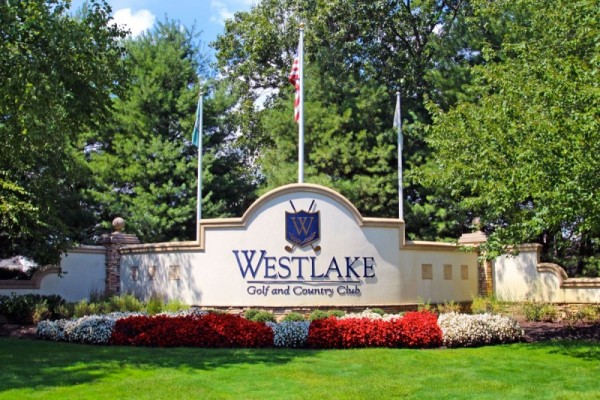Disabled Rabbi Sues Jackson Senior Community

A retired pulpit rabbi who uses a wheelchair is suing the senior community in Jackson in which he lives, saying that its failure to accommodate his handicap has prevented him from accessing a Shabbos minyan and from building a sukkah that meets his needs.
After two years of failed attempts at dialogue and compromise, Rabbi Philip Lefkowitz said that he was left with no choice but to pursue legal action.
“I tried over and over again, but they were absolutely not willing to accommodate me in any way,” he told Hamodia. “It’s all caught up with the anti-Orthodox tensions here; the bottom line is that they don’t want Jews moving [to the community] and they think this is a way to accomplish that.”
After leaving a 30-year career in the rabbinate, Rabbi Lefkowitz sought out a location near his daughter and her family, who had bought a house in Jackson Township, near the border with neighboring Lakewood. He found a house for sale in the Westlake Golf and Country Club, a gated community for people 55 and over.

His purchase made Rabbi Lefkowitz the community’s first and — to this day — only Orthodox homeowner. Yet, he did not fear isolation from the amenities of Jewish life, as his daughter’s home, on a block with many other Orthodox families, complete with a regular minyan, was located just a few moments away, on the other side of a gate in back of Rabbi Lefkowitz’s house.
There was only one snag — Westlake would not let him access the gate’s entrance, saying that it was not meant for regular use by residents and that opening it and constructing the path Rabbi Lefkowitz requested would “change the nature of the community.”
Assurances that only he would have a key to the Shabbos-accessible lock that Rabbi Lefkowitz wished to build did little to change the mind of board members.
“The whole thing doesn’t make any sense. What is it about a 74-year-old man in a wheelchair going through a side entrance that would change the nature of a community?” he said.
Rabbi Lefkowitz lives with two of his adult sons, Moshe and Levi. All three are partial amputees as a result of diabetes who use wheelchairs and walkers for mobility. Without the gate open, the only way for them to reach the nearby Shabbos minyan is to wheel themselves in a roundabout route of nearly 1.5 miles along busy roads. The trip proved unsafe, as many stretches do not have sidewalks, and in the meantime, the Lefkowitz’s are unable to attend a minyan on Shabbos and on Yamim Tovim.
Rabbi Lefkowitz claims that his attempts to construct a sukkah were met with similar inflexibility on the part of Westlake’s board members. The community’s bylaws allow for the construction of similar structures, but limits them to a size of ten-by-eight feet. The dimensions are not large enough to fit the three Lefkowitzes, together with their wheelchairs and a table, but in 2016, a request to build a larger sukkah was denied.
The next year, Rabbi Lefkowitz applied for permission to construct a screened porch that could also be used as a sukkah, emphasizing that the structure would not be visible from the front of the house.
This request, too, was denied, and a response from Bobbie Rivere, the board’s president, said that “community association living” involves a “balancing of interests and compromises [that] are required for the greater good.”
“Why should a porch be a problem for anyone? One can’t see it unless you trespass,” said Rabbi Lefkowitz.
The result has been that for the last two years, the Lefkowitzes have been unable to have a sukkah on their property, creating an additional imposition, as their handicap — and lack of access to the nearby gate — severely limits their mobility on Shabbos and Yom Tov.
Rabbi Lefkowitz, who in his many years as a pulpit rabbi worked often with public officials and clergy of other faiths on communal matters, has tried many avenues of dialogue. After two years passed with little progress made, he first approached several national organizations including the ADL and the UJA, but said that both were “not cooperative.” Rabbi Lefkowitz credited Agudath Israel’s New Jersey Director, Rabbi Avi Schnall, with connecting him with the firm of Bevelock and Fisher, who are now representing his case against Westlake.
Rabbi Lefkowitz hails from Bensonhurst and served in various congregations in Canada and the United Kingdom before a decades-long stint at Agudas Achim in Chicago.
The lawsuit, filed last week in federal court, claims that the association’s failure to accommodate Rabbi Lefkowitz’s needs constitutes a violation of the Fair Housing Act as well as the New Jersey Law against discrimination.
Westlake has not responded to the suit, and a request from Hamodia for comment on the matter went unanswered.
Rabbi Lefkowitz feels that the association’s actions are rooted in a general hostility toward the increasing influx of Orthodox Jews to Jackson Township, something he says he felt from his first days in Westlake.
“When I came here, people said that I was the tip of the spear of the invasion,” he said. “I think when a person allows bigotry to take over his life, all logic and fair play disappear, and that is what happened here.”
To Read The Full Story
Are you already a subscriber?
Click "Sign In" to log in!

Become a Web Subscriber
Click “Subscribe” below to begin the process of becoming a new subscriber.

Become a Print + Web Subscriber
Click “Subscribe” below to begin the process of becoming a new subscriber.

Renew Print + Web Subscription
Click “Renew Subscription” below to begin the process of renewing your subscription.












